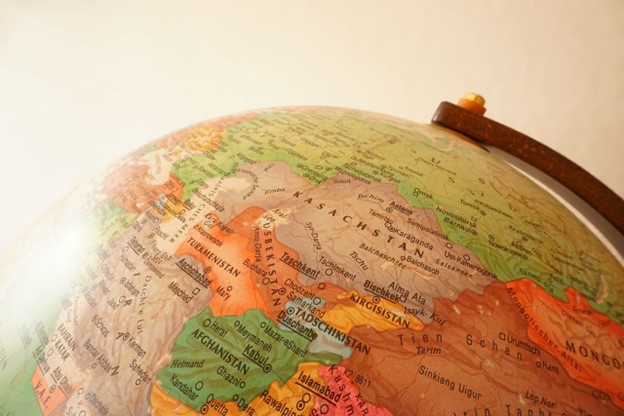Facing a long list of domestic challenges since his invasion of Ukraine, Russian President Valdimir Putin has now turned the Kremlin’s propaganda machine toward attacking the sovereignty of the five Central Asian states. It may be a distraction from trouble at home, or it could be a glimpse into Putin’s real intentions in the region. Discerning what is foreshadowing versus what is simple rhetoric is complex. The Kremlin has a long history of supporting hostile statements made by high-ranked Russian leaders and other public figures. Of growing concern lately is that recent vitriolic language appears to closely mimic the type of threats of invasion and annexation that came out of Moscow prior to the start of the war in Ukraine. Is this Putin’s next move? It is too soon to tell.
“The hostile rhetoric and actions from Russia have eroded trust and relations between Central Asian countries and Russia… The invasion of Ukraine has shattered the perception of Russia as a reliable ally among Central Asian elites,” says Nurbek Bekmurzaev of the Eurasian Daily Monitor. Last month a well-known Russian historian Mikhail Smolin reportedly claimed that Kazakhstan and Uzbekistan were not nations before the October 1917 Russian Revolution.
The statements, reported in the Uzbekistan media after being delivered on Russia’s TNV channel show “Mestro Vstrechi,” are likely sanctioned by the government. Smolin’s remarks that the two countries were created by Soviet authorities “from several Central Asian peoples” appears to be an attempt to sow discontent and deny the regional states’ sovereign rights. Bekmurzaev calls the statement “scandalous” and points out that Smolin was, in essence, accusing the regional governments of enforcing policies discriminating against ethnic Russians.
Kazakhstan is the only Central Asian state that shares a border tangent to Russia’s. It is the most targeted country. Although all five gained independence with the fall of the Soviet Union in 1991, they previously were under the Russian Empire’s control beginning in the 19th century. Moscow views Central Asia as its backyard and continues to claim the exclusive right to have an outsized influence there. In effect, Russia’s position has limited the states’ abilities to manage their own security, politics, and global economic engagements. Russian officials increasingly visit Central Asian state to ensure Moscow’s preferences are considered in policy matters. The public Russian accusations are not new. Ten years ago, Putin claimed Kazakhstan’s first president, Nursultan Nazarbayev, “created a state on territory where there had never been a state.” Three years ago, a Russian Duma Deputy, Vyacheslav Nikonov, declared on air that Kazakhstan simply didn’t exist. Tengri News in December 2020 attributes Nikonov with saying it was “a great gift from Russia and the Soviet Union.”
Bekmurzaev points out, however, that the most threatening Russian statements are not made in the media. The pressure is applied behind closed doors. In March 2022, less than a month after Putin invaded Ukraine, Sergei Savostyanov, another Duma deputy, told the Kazakhstan publication Katzag, that Moscow would offer Astana to expand its “ongoing denazification and demilitarization operation” in Ukraine to include Kazakhstan.” A month after this incident, Russian television host and husband of the central propaganda figure Margarita Simonyan, Tegran Keosyan, accused Kazakhstan of “ungratefulness” and threatened the country, calling for it “to look at Ukraine” in response to the country’s decision to cancel the annual parade commemorating the Soviet Union’s victory in the World War II,” says Bekmurzaev. The attacks on the country have continued and are intensifying with Russia’s former president calling the Central Asian country an “artificial state” on land gifted by Russia and accusing Astana of policies that “could be classified as genocide of Russians” living there. Last month the Kazakhstan publication Liter reported that when the name of a train station was changed from a Russian one to a Kazakh name. Moscow accused Astana of “pushing out the Russian language” from the public space. Other Russian politicians and writers claim many of the Central Asian states are committing “clearly unfriendly actions” toward Moscow and are calling for formal annexation.
Although the region is vulnerable to these media attacks due to its reliance on Russia for political, security, and economic prosperity, according to Bekmurzaev, Kazakhstan has cancelled several Russian television channels that translate state propaganda. What is certain today is that Central Asian leaders are acutely aware of the potential for Russia to take increasingly hostile action toward the region as it maintains a colonialist view toward it. The hostile rhetoric by Putin’s minions have eroded trust in Central Asia toward Russia since the invasion of Ukraine. What remains uncertain is how far Putin will push the concept of Russian domination over the region. If the pattern seen before the invasion in Ukraine is repeated, the war could spread farther east.
Daria Novak served in the U.S. State Department
